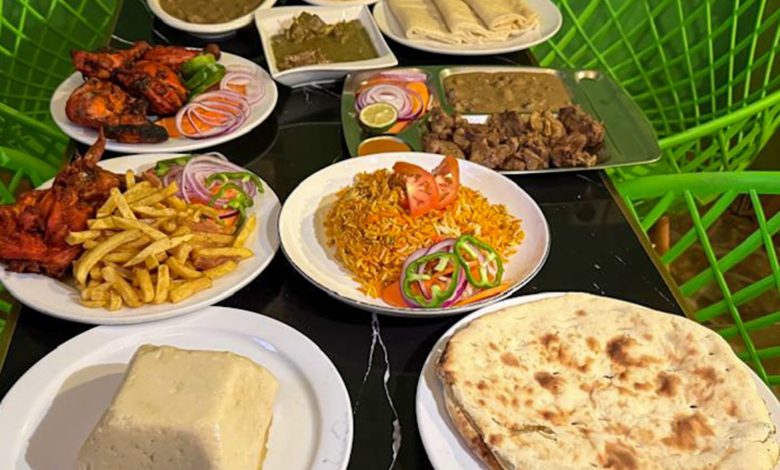Sudanese Products Spread in Ugandan Markets

Sudan Events – Agencies
Sudanese stores are clearly visible to visitors in the Ugandan capital, Kampala, where Sudanese products have notably entered the Ugandan market over the past year, with shops selling these goods on major streets and even in smaller neighborhoods.
Uganda, home to over 64,000 Sudanese refugees according to UNHCR statistics, has become a major market for Sudanese products, leading to the spread of Sudanese culture in many areas populated by Sudanese refugees and traders.
The Crossing of Sudanese Products
Montaser Al-Hadi, a young man who runs a small shop in Kampala, says he started this business after getting the idea while in Sudan, and succeeded in implementing it during his year-and-a-half stay in Uganda. He mentions that popular Sudanese products include lentils, peanuts, fava beans, tahini, and Sudanese cheese, noting that the demand for these products is extremely high.
He adds that some Sudanese products, such as sweets, coffee, and dates, have been well received by Ugandans due to their unique taste and high quality.
Sudanese Market in Uganda by the Numbers
According to Dr. Badr El-Din Khalaf Allah, the media and public relations officer for the Sudanese Business Owners Union in Uganda, the Sudanese market has roots dating back to the 1970s when Sudanese trade flourished. Official statistics show over 500 Sudanese stores in various sectors such as restaurants, cafes, food, and crafts.
He added that these investments, valued between $500,000 and $1 million, have played a role in supporting Uganda’s economy through property rental, tax payments, and job creation for Ugandans.
Khalaf Allah pointed out that Sudanese bread is one of the prominent products in Uganda’s market, alongside spices, peanut butter (Dukwa), and Sudanese perfumes (Bakhoor). He affirmed that the growing number of Sudanese in Uganda has significantly contributed to the strengthening of Sudanese culture.
Sudanese Impact on the Ugandan Economy
Khalaf Allah believes that Sudanese investors who brought their money to Uganda have contributed to the development of the real estate sector, where rental prices have risen significantly. Sudanese activity has also led to the growth of areas such as downtown Kampala, which has seen the construction of new towers and commercial complexes.
Sudanese Cuisine in Uganda
Mohamed Siddiq, the owner of Al-Firdaws Restaurant in Kampala, confirms that Sudanese dishes like “Kassara with Okra Stew,” “Tagaliya,” and “Asida” are widely popular, especially among Sudanese, South Sudanese, Somalis, and West Africans.
He adds that some dishes, such as Okra Stew and Molokhia, have gained popularity among Ugandans due to their perceived health benefits, particularly for people with diabetes.
Siddiq concludes that this growing interest reflects the cultural interaction between Sudanese and other communities in Uganda, which enhances the presence of Sudanese products and meals in the Ugandan market.
Breaking into the Ugandan Market
Mubarak Mohamed Hussein, a banking and economic expert residing in Uganda, says that Ugandan markets typically take a long time to accept foreign products and integrate with other cultures, due to their reliance on specific staple products and the limitations of the local economy. However, Sudanese products like dates, peanuts, and certain sweets have gained significant acceptance among locals.
Hussein further explained that small Sudanese producers have contributed to shifting the trade balance in Uganda through innovative investment projects, such as exporting agricultural crops like avocados, pineapples, and jackfruit, which has positively impacted Uganda’s economy. He pointed out that some young Sudanese entrepreneurs have established agricultural associations in the “Biali” area in southern Uganda, highlighting their role in promoting productive activities.
Hussein concluded that it is still too early to provide accurate figures on the impact of Sudanese products on the Ugandan economy or the volume of Sudanese contributions to national exports, as the experience is still new and has not yet fully integrated into the official export cycle. However, preliminary estimates suggest that Sudanese contributions to Uganda’s total exports are around 5%, despite most Sudanese exporters having started their activities less than a year ago.
Thus, Sudanese products are not only commercial goods but also a means to strengthen economic and cultural relations between Sudan and Uganda.
Source: Al Jazeera Net



